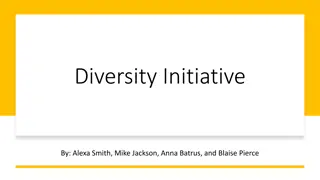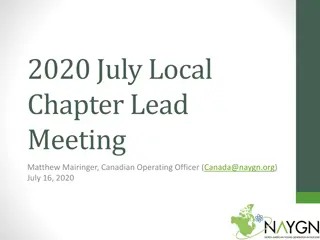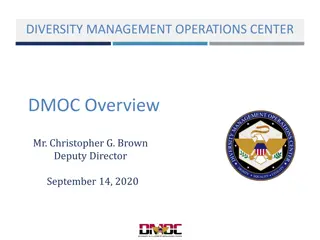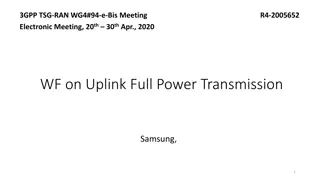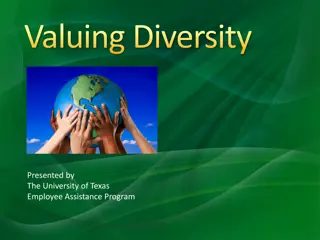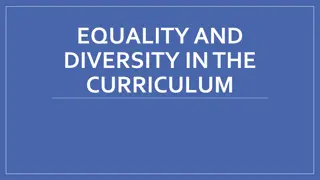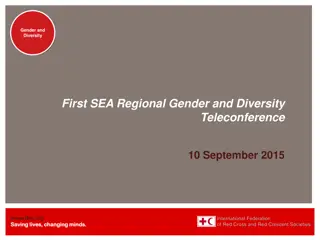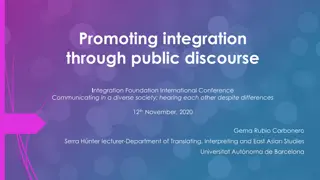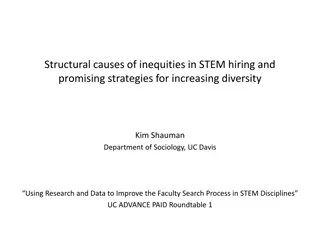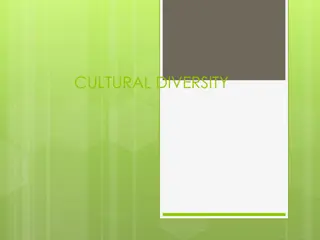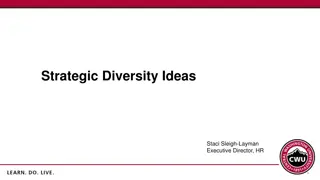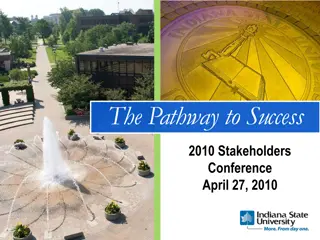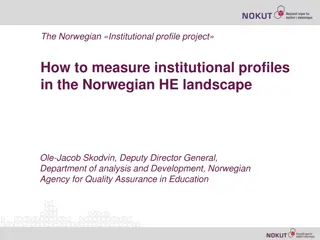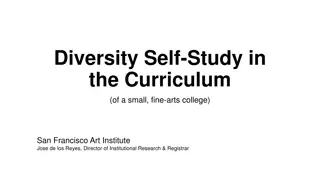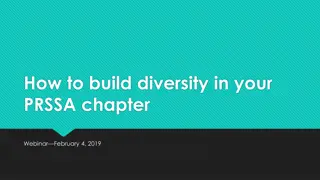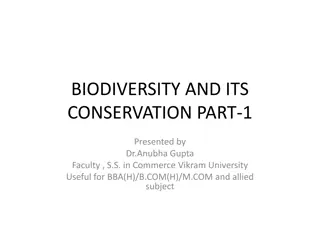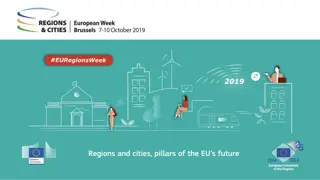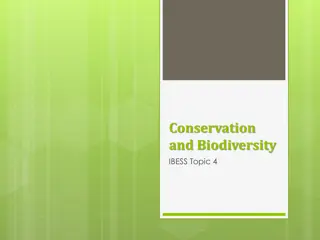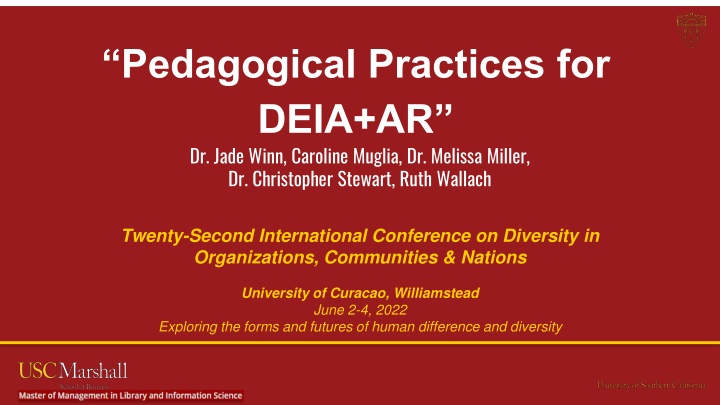
Exploring Pedagogical Practices for DEIA+AR in Library and Information Sciences
Join Dr. Jade Winn, Caroline Muglia, Dr. Melissa Miller, Dr. Christopher Stewart, and Ruth Wallach at the Twenty-Second International Conference on Diversity in Organizations, Communities & Nations, as they delve into curriculum and pedagogy recommendations for fostering diversity, equity, inclusion, accessibility, and anti-racism within the MMLIS program. Learn about the proactive efforts of the MMLIS DEIA+AR Working Group in creating a more inclusive learning environment based on actionable recommendations and strategic planning.
Download Presentation

Please find below an Image/Link to download the presentation.
The content on the website is provided AS IS for your information and personal use only. It may not be sold, licensed, or shared on other websites without obtaining consent from the author. If you encounter any issues during the download, it is possible that the publisher has removed the file from their server.
You are allowed to download the files provided on this website for personal or commercial use, subject to the condition that they are used lawfully. All files are the property of their respective owners.
The content on the website is provided AS IS for your information and personal use only. It may not be sold, licensed, or shared on other websites without obtaining consent from the author.
E N D
Presentation Transcript
Pedagogical Practices for DEIA+AR Dr. Jade Winn, Caroline Muglia, Dr. Melissa Miller, Dr. Christopher Stewart, Ruth Wallach Twenty-Second International Conference on Diversity in Organizations, Communities & Nations University of Curacao, Williamstead June 2-4, 2022 Exploring the forms and futures of human difference and diversity
Agenda I. Short Background on MMLIS Program & DEIA + AR II. Short Background on Working Group III. Active Engagement IV. Curriculum & Pedagogy Recommendations V. Summary VI. Question + Answer
Background on MMLIS Program Founded, 2013 Graduate training in library and information science taught through the lens of management, a skillset identified by the profession as crucial for library professionals Aligned with the 14 major competencies laid out by the American Library Association (ALA) The only graduate LIS program offered through a top-ranked business school Fully online, highly synchronous Students from multiple states as well as Asia and Europe
MMLIS DEIA + AR Working Group 5 teaching faculty from the Masters of Management in Library and Information Sciences (MMLIS) at the University of Southern California (USC) formed a working group to proactively plan for Diversity, Equity, Inclusion, Accessibility and Anti-Racism (DEIA+AR) in three areas: curriculum, pedagogy and programming In the United States, summer 2020 saw a racial reckoning: Black Lives Matter Racially Motivated Police Violence Global pandemic that disproportionately impacted BIPOC communities
Working Group Goals (1 of 2) Overarching goal: to foster a more inclusive learning environment based on curriculum, pedagogy, and programming: Snapshot on current perspectives from students and teaching faculty Develop well-defined actionable and tangible recommendations for improvement Strategic plan to include short and long-term assessment benchmarks Plan for sustainability and future Projected timeline: 2-3 years to develop and implement recommendations
Working Group Goals (2 of 2) 3 deliverables: Terminology and Working Concepts document Commitment Statement Recommendations document
How the Working Group Worked Together? Met twice monthly for operational and strategy meetings Agreed to and continue to uphold group norms to ensure inclusive working relationship among group Met regularly with larger teaching faculty cohort to keep them apprised of work Developed and recruited Student Advisory Committee comprised of 8 current MMLIS students Developed and recruited for 1 semester-long intern from MMLIS program Conducted Student and Teaching Faculty surveys to capture current and aspirational DEIA + AR goals in curriculum, pedagogy, and programming Presented internally within USC and externally at conferences on the findings of the Working Group; and published 1 scholarly article
Active Engagement Process for achieving goal: Consultative: Student focus group; faculty and student surveys Targeted documentation: Program commitment statement; Terminology and Working Definitions; Curricular and pedagogical recommendations Feedback: open commenting period Action plan: moving forward
Commitment Statement The goal of this document is to state the core beliefs and values of MMLIS Program and its instructors. Voted by the MMLIS faculty and adopted in early April 2021. In the future, MMLIS instructors may vote to include this statement in MMLIS syllabi. Commitment Statement
Terminology and Working Concepts A working document, in progress. The goal is to develop a shared language of terms and contextual ideas towards a more inclusive learning environment. These terms may be adopted for courses or even program-wide. Date stamped, in recognition of the evolution of terminology. Terminology and Working Definitions
Recommendations A working document, in progress. Harness feedback from MMLIS instructors and the Student Advisory Committee (SAC) to develop actionable and practical changes to the curriculum, pedagogy, and programming efforts of the MMLIS program to ensure we are moving towards an inclusive learning environment. Recommendations Document
Programmatic Recommendations Invest in Ourselves to model inreach and continuing professional development by harnessing existing opportunities at the university, such as the Center for Excellence in Teaching, or within the USC Libraries: Instructors should consider classroom conflict resolution training through CET's Difficult Conversations. Invest in new faculty training Onboard all instructors in the program with the CET Excellence in Teaching series. Offer training to students in DEIA + AR before they begin their course of study Financially supporting MMLIS students participation in DEIA+AR webinars and training sessions. MMLIS students should proactively find and fund DEIA+AR webinars and training sessions. Include MMLIS students in professional development opportunities in USC Libraries. HIghly encourage MMLIS instructors to explore Future Faculty Teaching Institute Create a systematic structure for offering DEIA+AR internships to MMLIS students in the USC Libraries.
Curriculum & Pedagogy Recommendations Case studies to include where appropriate: Scenarios students might encounter that involve combating or addressing hate or implicit bias. How do students handle those conversations? Examples from specific courses: Systems focused courses: Include readings and discussions on accessibility and universal design; and implementing inclusive knowledge systems Technology focused courses: Include expanded information about assistive technology and accessibility Foundational courses: Include BIPOC, women, LGBTQ+ people in the assignment that includes a list of leaders. Explain or provide resources to learn the full story of institutions (i.e. Library of Congress class action suits); expose and learn from the ant-racist or exclusive structure and history of LIS institutions
Curriculum & Pedagogy Recommendations Make space and foster conversation for diverse voices and viewpoints in classroom settings, discussions, meetings, and interactions with others. Some assignments encourage students to examine questions of diversity but there are not enough opportunities to dig deeper through instructor facilitation. Develop and encourage use of a checklist to allow instructors to evaluate course syllabi for DEIA + AR inclusion in readings and assignments: Assess readings for currency, diversity and agency of voice; regional perspective; authorial language choices, position in macroculture; and assumptions of the audience, to name a few. Include readings/ modules that address ethical advocacy as well as nuanced and extensive understanding of the full spectrum of patrons with disabilities.
Curriculum & Pedagogy Recommendations Provide instructional design support for sustainably integrating DEIA and AR constructs into the curriculum at instructors request. Holidays (course schedule should contain all holidays from all religions and be discussed) Explain or provide resources to learn the full story of institutions (i.e. Library of Congress class action suits); expose and learn from the ant-racist or exclusive structure and history of LIS institutions Embed anti-racism practices in curriculum throughout the course
Assessment Approaches- Program Level Examples Instructors will add DEIA+AR to their course objectives and a program goal will be developed. Mixed methods analysis of Program Goal (PG) related to DEIA+AR construct Develop Rubric for scoring Capstone PG essay on DEIA+AR Score essays on rubric (quantitative) IRB Exempt (most likely will come back as exempt: educational program improvement) Extract qualitative data from DEIA+AR related assignments (develop data extraction form template) Determine frequency of assessment Many instructors have already had DEIA+AR assignments (this is also a recommendation) Curriculum map current DEIA+AR assignments (and add as instructors follow the recommendation to add DEIA+AR assignments or portions of assignments) Curriculum map itself can be used as evidence of progress Rubrics for individual assignments (must be developed according to individual assignments) Requires full IRB (most likely will come back as exempt: educational program improvement)
Summary/Discussion Broad to Narrow Programmatic Pedagogical Curriculum Course Specific Faculty Investment Clear Actionable Recommendations Continuous Conversation Assessment Plan for each Recommendation Buy-in and Follow Up An understanding that the Working Group will continue with membership changes, explicitly for continual growth and evolving as warranted
Thoughts? Questions? Or Suggestions jadewinn@usc.edu or rwallach@usc.edu
Presentations, Publications & Awards MOR Marshall School of Business Progress Report 8/21 Wallach, R., Miller, M.L., Muglia, C., Stewart, C. & Winn, J.G USC Libraries Research Grant Diversity, Equity, Inclusion, Access, and Anti-Racism in Library and Information Science Education: Strengthening Foundational Principles (Fall 2021) USC DEI Week Presentation Miller, M.L., Muglia, C., Stewart, C., Wallach, R. & Winn, J.G. (March 11, 2021). "Actionable Recommendations for an Anti-Racist and Inclusive Remote Learning Environment." USC Marshall School of Business. USC Diversity, Equity, and Inclusion Week, University of Southern California. http://bit.ly/MMLIS-USC-DEI-WEEK Reference Services Review Article 2022 Special Issue on Anti-Racists Action in Libraries Winn, J.G., Miller, M.L., Muglia, C., Stewart, C., Wallach, R. (February 2022), Situating LIS Pedagogy and Curriculum in Diversity, Equity, Inclusion, Accessibility, and Anti-Racism: A Reflection on Process , Reference Services Review, vol. 50, no. 1, pp. forthcoming. Emerald Publishing Limited. Twenty Second International Conference on Diversity in Organizations, Communities & Nations Winn, J.G., Miller, M.L., Muglia, C., Stewart, C., & Wallach, R. (April 2022). Pedagogical Practices for DEIA+AR Accepted presentation, Paper due for Peer Review in Feb. 2022


